When Ossi Grace released her debut single, 'Reason', back in 2024, she introduced herself to the world as a solo artist. As a songwriter, previously her vocals first appeared on M.I. Abaga's The Guy album with "Crazy,". However, she wasn't ready to begin her career at that moment. Two years later, she released "Reason", which has led to her freshly released debut EP In A Hopeless Place.
The EP is set against the backdrop of her experiences living in Lagos, Nigeria. The 11-track EP explores a range of sounds and features production from PGRSHN, Mojam, Remmy Baggins, and others. The soulful tone in her voice runs through the project from "Reason" to "FA" to "Where You Belong", the tracks previously heard before the EP release. From top to bottom, the project gives off a vibe different from what's considered afrobeats. Her musical influences, including Rihanna, Fela Kuti, and Tracy Chapman, among others, are evident in the EP's various sonic tones.
The colour blue sets the tone for the visuals across the EP and captures the mood and essence of Ossi as experienced in the backdrop of Lagos, coming through in the EP's tone and essence. And whilst the feelings of being in a hopeless place were the backdrop to the project's concept, the EP itself captures moments of joy, happiness and love, channelled into a sense of hope and resilience.
Speaking with Ossi, we dove into everything from songwriting and creating the EP to why the colour blue, her style, and more.

Hi Ossi, this is your debut EP—the first body of work you've released. Where did the process of making this project begin for you?
I've been working on this EP for three or four years, and I recorded the first song about four years ago. After the second song that I recorded, I knew what I wanted to sound like. I know what direction I'm going in. I'm also a songwriter, so I make music across different genres, but for me, it's always important to figure out your style. I knew that it was more soulful. I'm also more sensual and everything. So that was the start, and then everything just started falling into place.
You're a songwriter yourself —what was the process like for you when collaborating with others on this project, not just in the writing but also in production?
One thing that I really wanted to do, especially for this first project, was handle the songwriting. It just made things less complicated, and I didn't have to explain myself too much about where I was coming from. So I wrote every song on the EP with producers; I worked with a lot of different people. There's PGRSHN, Mojam and Remy Baggins who did a lot on there. These are people I really respect —not just for their work ethic, but also for their talent. I trust their ear, I trust their fingers, I trust that whenever they press a button or a key, it's going to be, if not something I like, something close to it. They are musical people, so it was very easy for me to explain where I was coming from. And it wasn't about pushing their ideas on me, but more about supporting the ideas I had, which is one of the amazing things I experienced working with them.
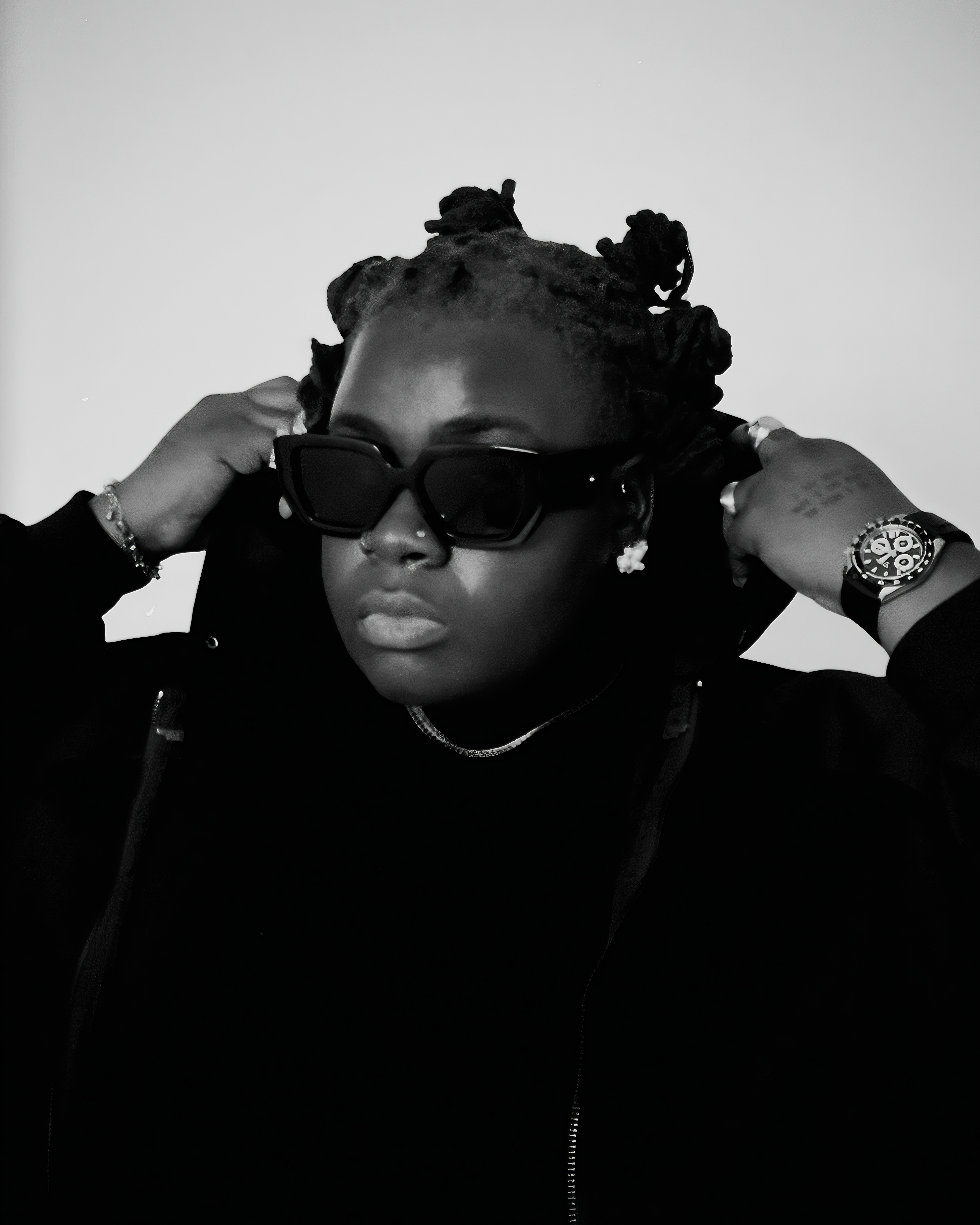
What was your experience of working with the producers, not just in terms of leading the project as the artist, but even just working with them to build the sonic sound of the EP?
One thing I have been blessed with in making this project is that I haven't worked with many people who have tried to push their ideas on me. I've met a couple of producers who are a bit it's my way or the highway. But once we get to that point, it's not gonna work. As a songwriter, I learned that the artist comes first. So I had to be a good listener. Even if I disagreed, I had to do what you wanted, because it's your art at the end of the day. For the most part, every producer was very much in the space of asking, "What does Ossi need?" Even someone as talented and amazing as PRGRSHN. He's a big producer, but he's also there to learn. He's coming there and asking, "What does this artist need?" I was working with people who wanted to make great music.
You released several songs from the project as singles before the release. One of the songs I wanted to speak about was "FA." What can you tell us about making that song, and how did we arrive at that one?
I know I didn't want anything complicated. It's a sexy song, but I didn't want anything complicated. I just wanted to be a confident woman around me and enjoy moving. You're not really looking at anybody around you. I wanted everybody to feel connected, because that's what I'm saying in the song. It's very Lagos. It's the vibe you get when you're enjoying yourself, and hopefully it leads to what I want. But regardless, I'm having a good time.
The colours for the EP are very blue, dark, and moody —that sort of essence. How did you arrive at that colour palette that reflected the project's tone?
I'm a moody girl, I like to have a good time, but in Lagos, sometimes a good time isn't bright. It's in a dark place. So that's the vibe that I grew up in. And I'm not gonna say I am totally because, you know, I like a bit of daylight sometimes. Those blue lights hitting you are a lot of the spaces that I am afraid of. So that was really where the vibe came from. And blue does look good on my skin. A lot of times, going out in Lagos, when we're in the club scene or night scene or whatever, when we make videos, because different lights always shine on us, we're making videos. The blue really did stick out to me, and every time we went somewhere, it was the, you know, neon blue, just bare, like, I really loved it.
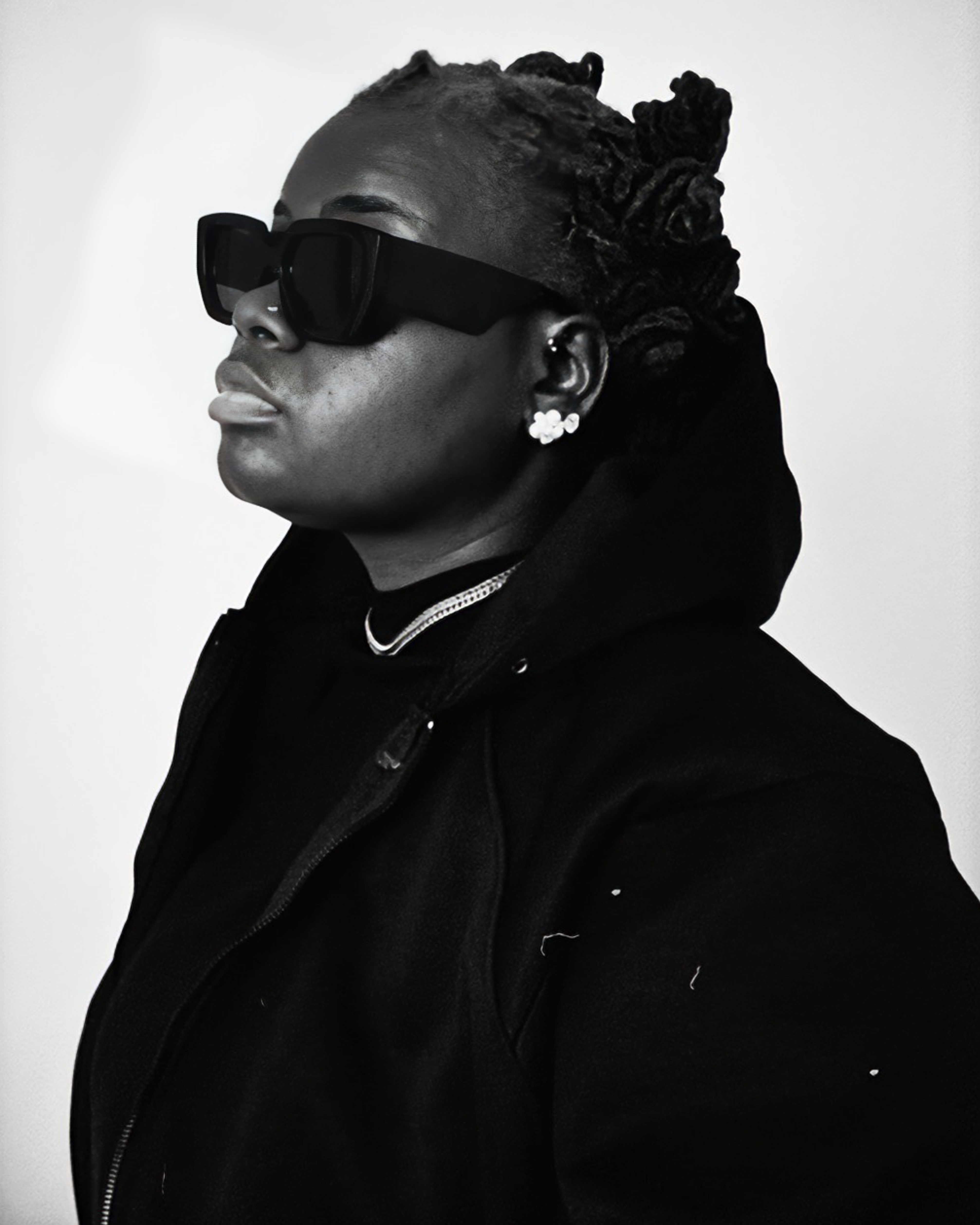
Talk to me about that, in terms of, you know, your fashion, your style, and how that also feeds into your creativity as well?
It took me a while to dress the way I do. At the end of the day, I am from Nigeria, and even as a woman there, whether anybody wants to admit it or not. There's a way you're supposed to look. Yeah, dreadlocks are a no-no. As crazy as that would sound, because we are literally in Africa, but like dreadlocks is seen as a sign of being irresponsible, then obviously my tattoos, and then piercings, it's everything that you should not be as a Nigerian woman or a Nigerian as a whole, that I took on and I embodied. So, it took me a while to get here, comfortable with myself. And for me to embrace who I am, and that I really like experimenting with different things. I'm very expressive, and as time goes by, I'm going to be experimenting with a lot more stuff. When it comes to clothes, it's not just about what I wear right now — especially jewellery and colours — because there was a time in my life when everything was black. I just started dabbling with different colours; some work, some don't. But I feel like life is short, so I try whatever makes you happy.
Having had this experience as a brand-new artist, what has it been like overall?
I'm not going to say it has been easy. There are things that you don't want to do, that you have to do. One thing I struggled with — and that is definitely much better now — is posting on social media. I grew up where Facebook was cool, but we didn't constantly have our phones to our faces like everybody was out, like we were at the cinema, or just being kids —you get what I'm saying. So definitely, now, as an artist, you have to use TikTok and post on Instagram. And so, social media is definitely something I had to get the hang of. Also, just doing interviews where you are talking to a person. And you know, now it's like, even if you're so comfortable with the interviewer, you also need to know that this is going out to the whole world, possibly, and you can't just sit there and say anything.
For anybody who will be introduced to you from the EP, so what do you want them to know about you, and what do you want them to take away from the project?
I think there's something they will probably expect, being that I'm from Nigeria —I grew up in Nigeria —and you're not going to get that EP. My music comes from everything I've listened to, from when I was a child to now. I've travelled a bit, too. So I've always drawn inspiration from different places —like, growing up, you know, my mom made us listen to all sorts of things. We can listen to Fela Kuti today and Tracy Chapman tomorrow, as if it were just one or the other. So you're not going to experience the Afrobeats you're from Nigeria; open your mind to good music, is what I would say.
.svg)

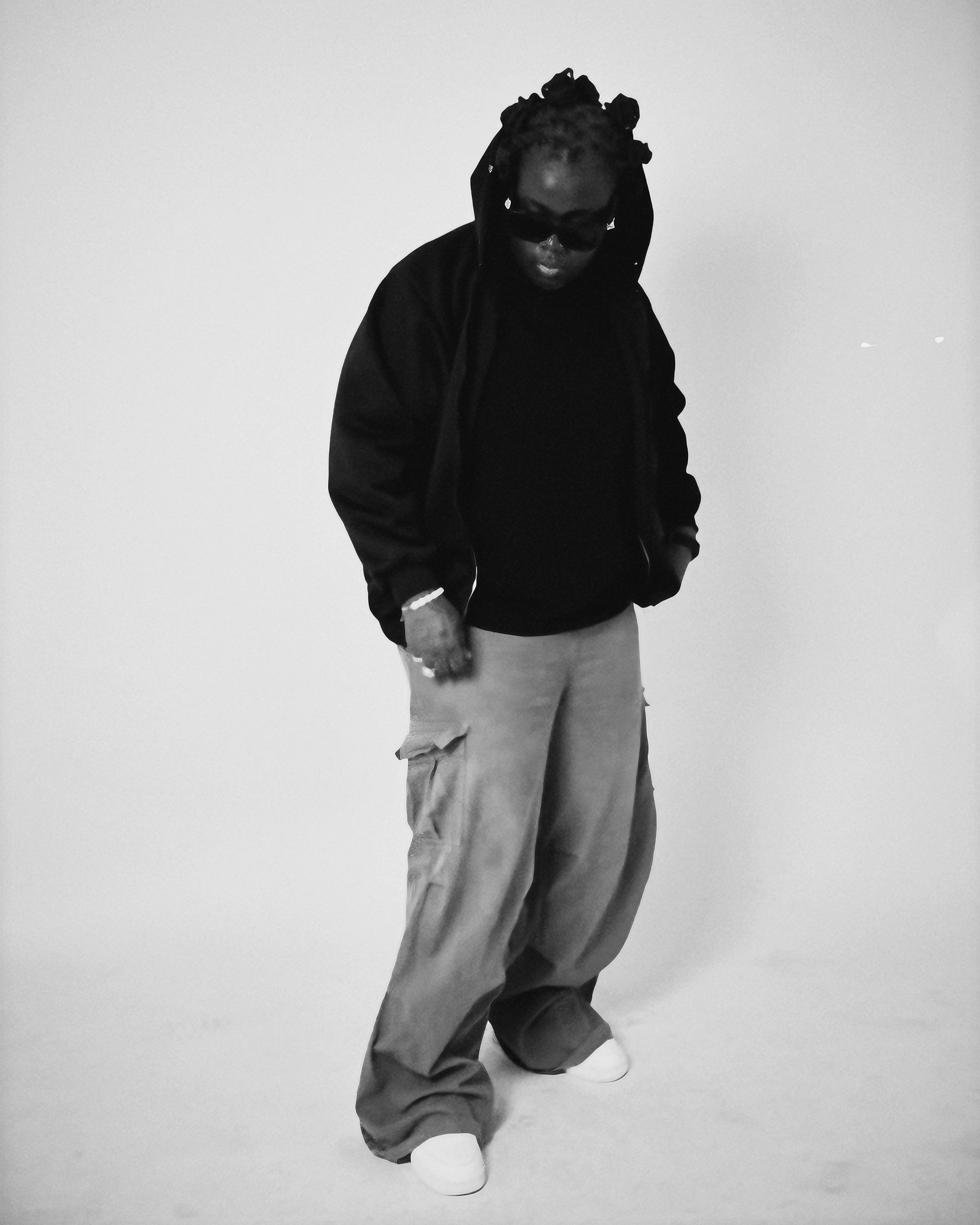

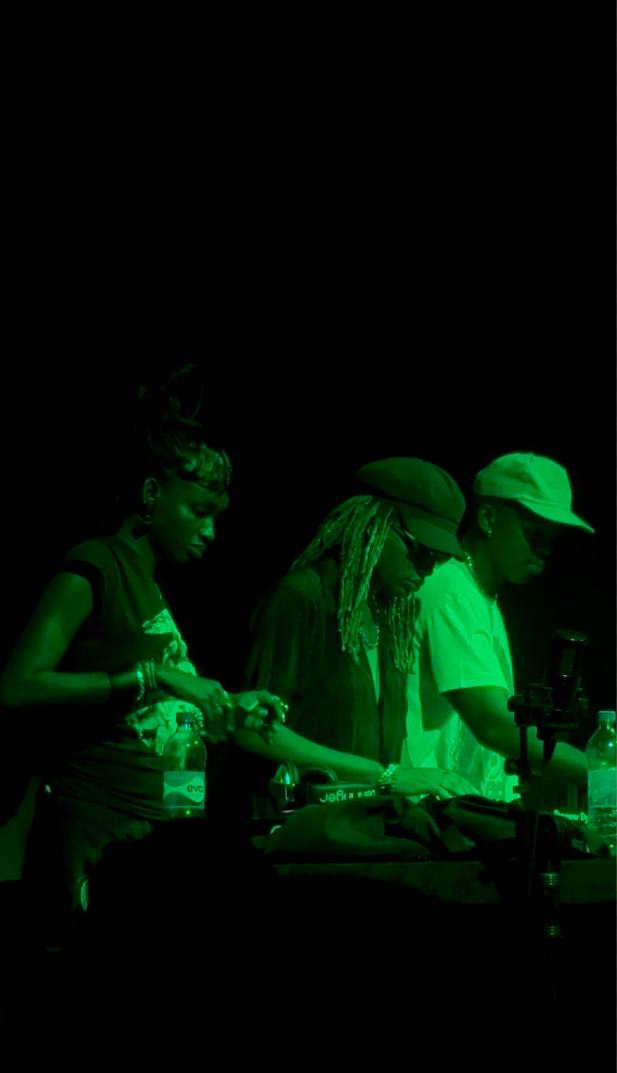
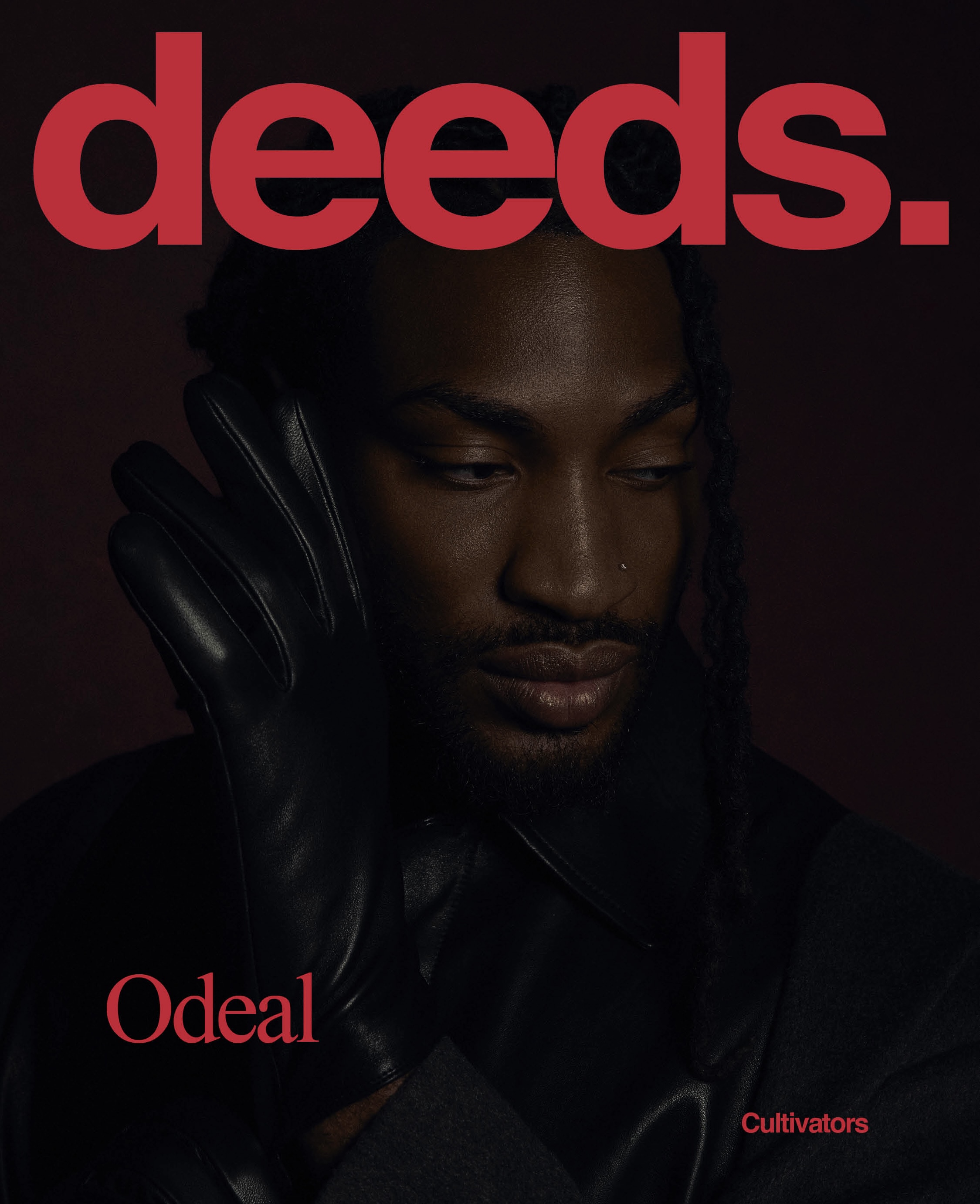


.png)

